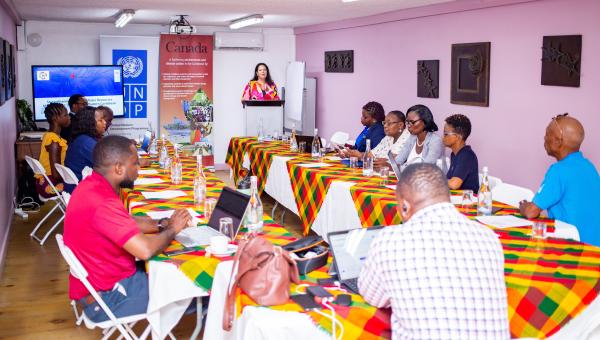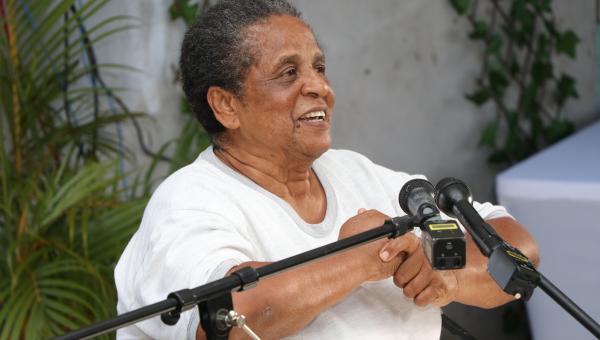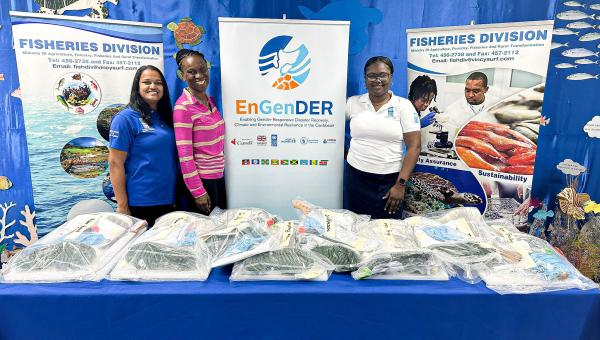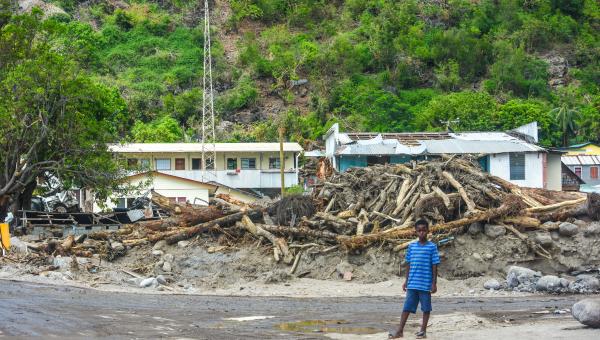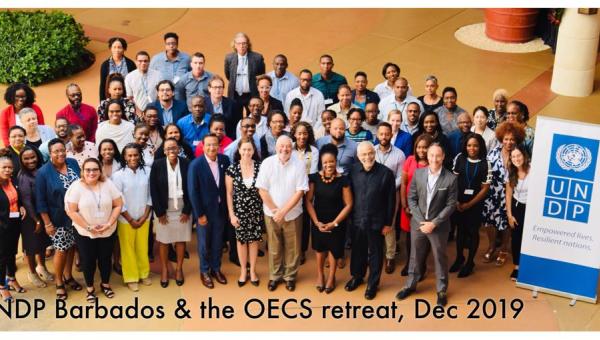
UNDP in Barbados and the Eastern Caribbean
Nature, Climate and Energy
UNDP provides support to Small Island Developing States (SIDS) in the Eastern Caribbean by promoting and implementing projects that increase the adaptability and resilience of both the island and the people to the impacts of climate change. This is achieved by engaging with country partners to develop and employ sustainable and viable solutions to the unique challenges caused by climate change and compounded by small scale economies, heavily reliant on a fluctuating tourism industry, a scarcity of natural resources and low food security.
Climate change imposes severe social challenges including displacement of workers and economic turmoil which are further exacerbated by changing weather conditions and environmental degradation. Climate change will also have a profound impact on natural resource management particularly regarding blue and green resources; highlighting the need for climate sensitive strategies to improve climate risk management (a systematic and coordinated process in which climate information is used to reduce the risks associated with climate variability and climate change), and take advantage of collateral opportunities, in order to improve the resilience of social, economic and environmental systems. The impacts of climate change are not homogenous and often compound underlying disparities among different groups. In particular, the differential impacts of climate risks on women and men are acute in the region, with the former often experiencing much greater losses and increased vulnerabilities related to climate-related disasters. In the wake of, already present and, undoubtable future impacts of climate change, UNDP is poised and well equipped to assist SIDS sustainably develop and adapt symbiotically to environmental challenges.
The Nature, Climate and Energy (NCE) cluster is working to achieve its mandate by developing and implementing strategic multi-country programmes and initiatives projects that are not only focused on a country’s national priorities but will directly have an impact on the livelihoods of people given that climate change is being felt and will continue to be felt by the most vulnerable in the population.
OUR WORK
Healthy ecosystems underpin sustainable development; and nature provides USD 125 trillion in assets to humanity. It is the very reason that UNDP has nature-based solutions as one of its six signature solutions. The COVID-19 pandemic is a direct result of the degradation of natural areas, species loss and exploitation. UNDP’s work, helping governments to address inclusive and sustainable solutions adopted for the conservation, restoration and use of ecosystems and natural resources, can contribute to the prevention of future pandemics. It is important to note that the COVID-19 pandemic has also created an unprecedented and insatiable demand for innovation and collaborative solutions throughout the region. Futher exposing the need to recognize the interconnected and cross-sectoral nature of building resilience, specifically tailored to an integrated approach within the context of biodiversity conservation.
The NCE Cluster is currently implementing several projects that address sustainable development challenges faced by Caribbean SIDS including:
Projects
Explore More

 Locations
Locations





